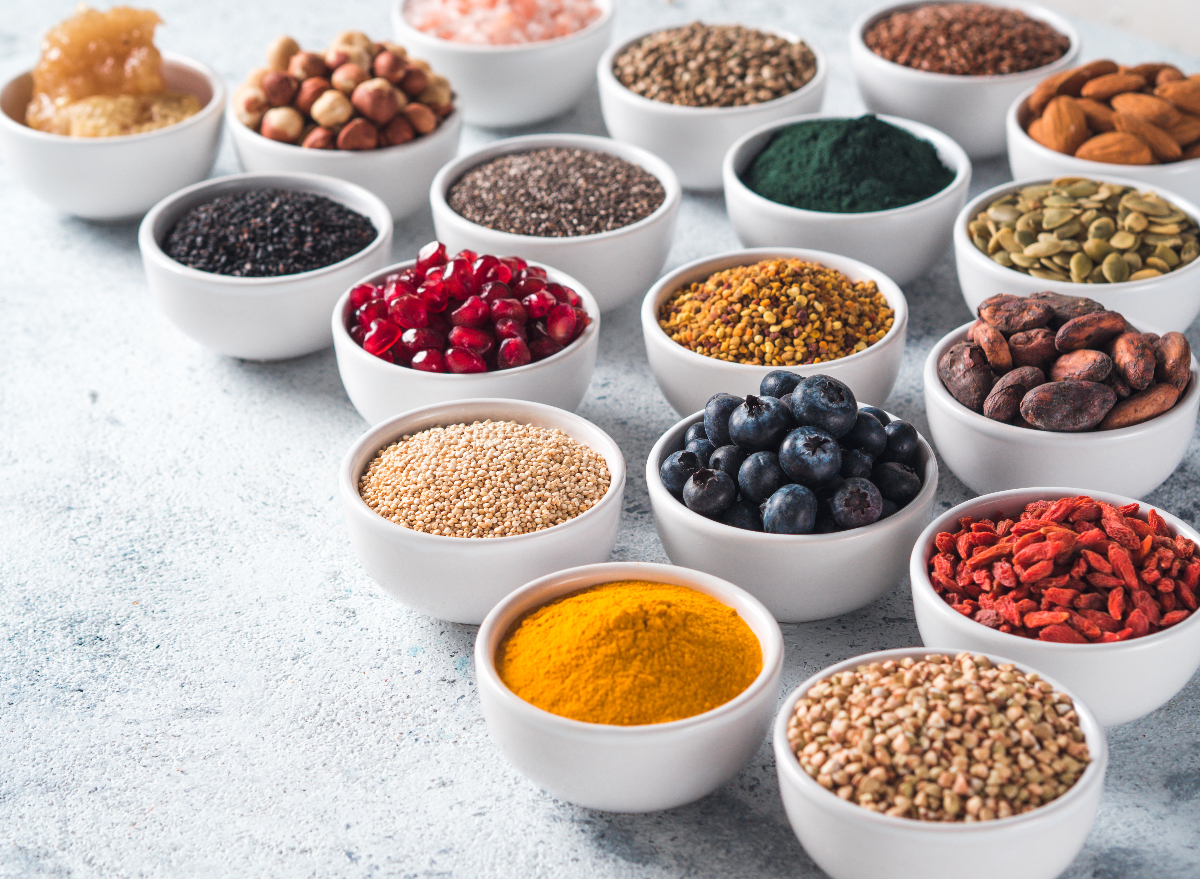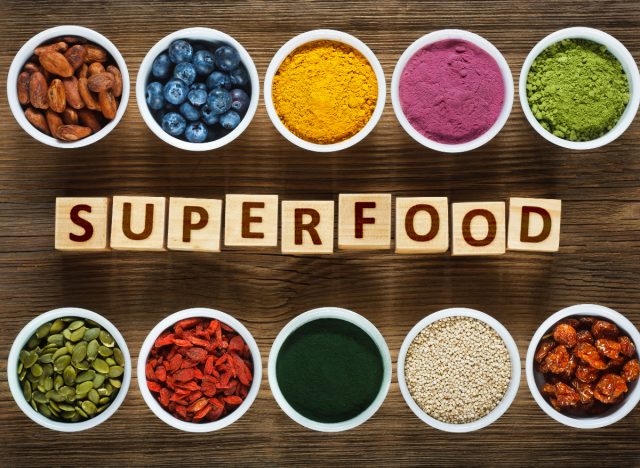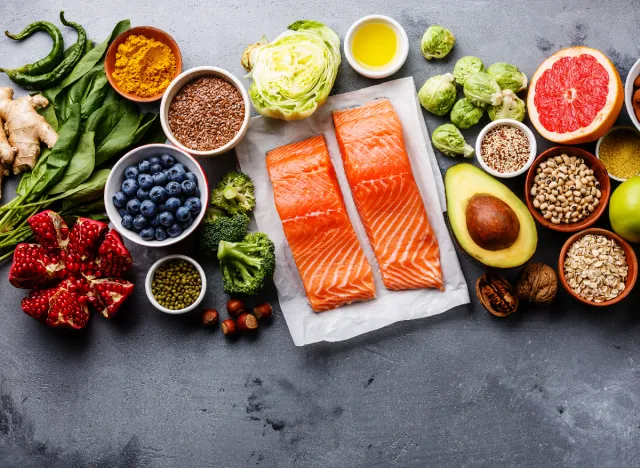Your Only Goal This Year Should Be To Eat More Superfoods, Dietitian Says

There aren’t many nutrition terms that are as buzzy as the word “superfoods.” Just hearing that a certain food is deemed a superfood makes it incredibly appealing to eat if you have your health and wellness in mind, given its “super” implications.
Yet, while we see the word “superfood” floating around the internet and frequently mentioned among the wellness crowd, many people aren’t entirely clear on what a superfood actually is. Are superfoods even an actual, real thing—or is this yet another trendy term that sounds important but really doesn’t mean much?
While the cloud of ambiguity around superfoods certainly adds to their alluring mystique, it’s no surprise that people want answers about what specific qualities concretely define and differentiate these foods from other ordinary, “non-super” foods. Well, superfoods aren’t a mythical health & wellness unicorn. Not only are they very much a “real thing,” but this accessible assortment of healthy foods is as diverse as it is delicious.
Keep reading to learn more about what constitutes a superfood and how to incorporate more into your diet. Also, for more insight into the benefits of certain whole grain superfoods, be sure to check out Move Over Quinoa, There’s a New Grain in Town That This Dietitian Is Loving.
What are superfoods?

Believe it or not, there is actually a definition of the term in the Merriam-Webster Dictionary: “A food (such as salmon, broccoli, or blueberries) that is rich in compounds (such as antioxidants, fiber, or fatty acids) considered beneficial to a person’s health.”
Popular superfoods include salmon, acai berries, and cruciferous vegetables like cauliflower, thanks to their nutrient density and other beneficial nutritional features that support overall health.
The first known documented use of the word “superfood” occurred back in the early 20th century, when the United Fruit Company—or Chiquita Brands, as it’s now known today—used it as part of a campaign to encourage more banana consumption. According to an article published by UC Davis, “The company used the term to promote the practicality of bananas as a daily source of cheap, easily digestible nutrition.”
As a term, superfood is used quite liberally today to emphasize a food or drink’s nutritional density or nutritional features. Since 2005, there are over 400 mentions of the word superfood in the medical literature, showcasing that some members of the medical community have accepted this terminology.
While it is true that there is a definition for the word “superfood,” it is also important to note that it is not regulated by any governing body. That said, any healthy food can be deemed worthy of falling under the superfood description, depending on who you ask.
Should you eat superfoods?
Eating foods that have compounds that benefit your health is always a good idea. And you will be hard-pressed to find a person who will advise you to stay away from omega-3 fatty acid-rich walnuts or antioxidant-rich strawberries.
Just be wary of marketing claims boldly stating that certain items are “superfoods.” In fact, to reduce the prevalence of misleading marketing in Europe, companies are actually prohibited from identifying something as a superfood without supporting credible scientific evidence or an authorized health claim to backing this up. Here on the other side of the pond, if a food item or brand is marketed under the “superfoods” banner, yet they don’t contain or offer large quantities of nutrient-dense foods, remember—sometimes when something sounds too good to be true, it often is.
How to include more superfoods in your diet

Saying that you “want to eat more superfoods” generally means that you want to include more foods in your diet that can help support your health in a specific way. Yet, since there is no quantifiable way to determine if one superfood is more “super” than another, the “best” options are debatable.
However, if you make a point to eat more produce, nuts, seeds, beans, eggs, and oily coldwater fish, you will be on the right track to accomplishing your goal.
Some simple ways to include more nutrient-dense foods that can be considered to be superfoods are:
- Add green leafy veggies like spinach and kale to your smoothies
- Opt for a salmon salad sandwich instead of using lunchmeat
- Snack on hard-boiled eggs (with the yolk!)
- Add extra broccoli and onion to your stir fry dishes
- Sip on 100% orange juice for a boost of plant compounds
- Sprinkle berries on your cereal or oatmeal
- Enjoy dark chocolate-covered walnuts for a sweet treat









